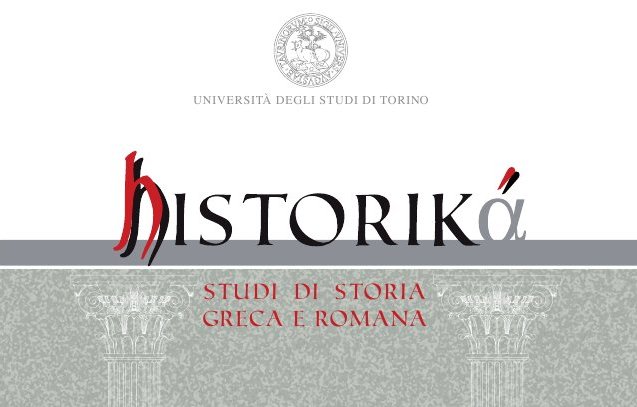La lungimiranza politica di Claudio fra storiografia antica e Ragion di stato dei moderni
DOI :
https://doi.org/10.13135/2039-4985/3459Résumé
Il contributo si concentra sul racconto tacitiano del discorso tenuto da Claudio nel 48 d.C. a favore dell’ammissione in senato dei primores della Gallia Comata, esaminando le argomentazioni usate dallo storico per chiarire le reazioni suscitate dalla loro richiesta e la linea argomentativa adottata dall’imperatore per convincere i senatori ad accettarla. Oltre ad esprimere la consapevolezza dell’efficacia dei criteri usati dai romani per istituire un ordinamento imperiale a carattere sopranazionale, il passo mostra l’abilità di Tacito nel sottolineare la pregnanza politica dell’intervento di Claudio e nel renderlo un modello meritevole di sopravvivere ed essere menzionato molti secoli più tardi nella cultura moderna. In questa prospettiva, la seconda parte del lavoro analizza alcuni riferimenti al discorso dell’imperatore nel corso del Cinquecento e del Seicento da parte di autori come Justus Lipsius, Scipione Ammirato, Jean Bodin, Traiano Boccalini, Hugo Grotius. Nel contesto delle loro opere, talvolta dedicate anche all’esame di temi come la nascita, lo sviluppo e il declino degli stati, si nota che oltre a richiamare l’episodio occorso molti secoli prima, alcuni intellettuali di spicco usarono il resoconto ricavandone un esempio utile per promuovere un modello di governo efficace nel favorire l’integrazione quale mezzo di consolidamento degli stati moderni.
The paper focuses on Tacitus’ account of the speech made by Claudius in 48 CE in favour of the admission of the primores of ‘long-haired’ Gaul to the senate, examining arguments used by the historian to clarify the reactions to their request and the reasoning adopted by the emperor to convince the senators to accept it. Besides expressing awareness of the efficacy of the criteria used by Romans to create a supranational imperial order, the passage shows Tacitus’ ability to highlight the political meaningfulness of Claudius’ intervention, making it a model worthy of surviving and being mentioned many centuries later in modern culture. In this vein, the second part of the paper analyzes some 16th and early 17th century references to the emperor’s speech in authors such as Justus Lipsius, Scipione Ammirato, Jean Bodin, Traiano Boccalini, Hugo Grotius. Within their works, also dedicated to examining the birth, development and decline of States, we see that besides recalling an episode occurring many centuries before, some key-intellectuals made utilized the story into a valid exemplum to promote a model of efficacious government favouring integration as a means of consolidating modern states.
Téléchargements
Publiée
Numéro
Rubrique
Licence
Gli autori che pubblicano su questa rivista accettano le seguenti condizioni:
- Gli autori mantengono i diritti sulla loro opera e cedono alla rivista il diritto di prima pubblicazione dell'opera, contemporaneamente licenziata sotto una Licenza Creative Commons - Attribuzione che permette ad altri di condividere l'opera indicando la paternità intellettuale e la prima pubblicazione su questa rivista.
- Gli autori possono aderire ad altri accordi di licenza non esclusiva per la distribuzione della versione dell'opera pubblicata (es. depositarla in un archivio istituzionale o pubblicarla in una monografia), a patto di indicare che la prima pubblicazione è avvenuta su questa rivista.


 The journal has been approved for inclusion in DOAJ. The DOAJ listing of the journal is available at
The journal has been approved for inclusion in DOAJ. The DOAJ listing of the journal is available at 

